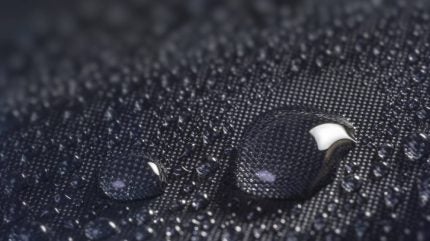
Prepared from BASF’s Elastollan thermoplastic polyurethane (TPU), Freeflex is designed to create nanomembranes with a reticular structure through electrospinning techniques.
BASF and Lemon have signed a memorandum of understanding (MoU), under which they will incorporate the fibre into Lemon’s manufacturing of waterproof and windproof apparel.

Discover B2B Marketing That Performs
Combine business intelligence and editorial excellence to reach engaged professionals across 36 leading media platforms.
In addition, the companies have agreed to explore opportunities for joint efforts in technology development and business expansion.
Lemon CEO Lee Jong-il said: “This partnership with BASF allows us to expand the application of our electrospinning technology and deliver high-performance nanofiber materials to global brands. By combining our expertise in nanomembrane development with BASF’s material innovation, we aim to set new standards in functional textiles.”
According to BASF, Freeflex is an ultralightweight material that offers high water repellency and enhanced air permeability. The fibre is also engineered to perform under severe conditions, while ensuring both comfort and durability.
Furthermore, Freeflex is manufactured without intentionally using per- and polyfluoroalkyl substances (PFAS) and is said to be completely recyclable. This aligns with the sustainability commitments of both companies.

US Tariffs are shifting - will you react or anticipate?
Don’t let policy changes catch you off guard. Stay proactive with real-time data and expert analysis.
By GlobalDataThe fibre enhances the quality of fabrics, offering benefits such as improved drape, shape, comfort, and appearance for garments.
It is applicable in footwear, apparel, hosiery, intimate garments, furniture, and home textiles, BASF said in its website.
BASF business management TPU, performance materials Asia Pacific vice president Rohit Ghosh said: “Freeflex demonstrates how material science can contribute to the future of high performance and more sustainable clothing. We are excited to introduce advanced TPU fibre technology to the South Korea’s apparel industry through the partnership with Lemon.”
In January last year, BASF and Spanish fashion company Inditex claimed to have made a breakthrough in textile recycling through loopamid, a nylon material derived entirely from textile waste.





